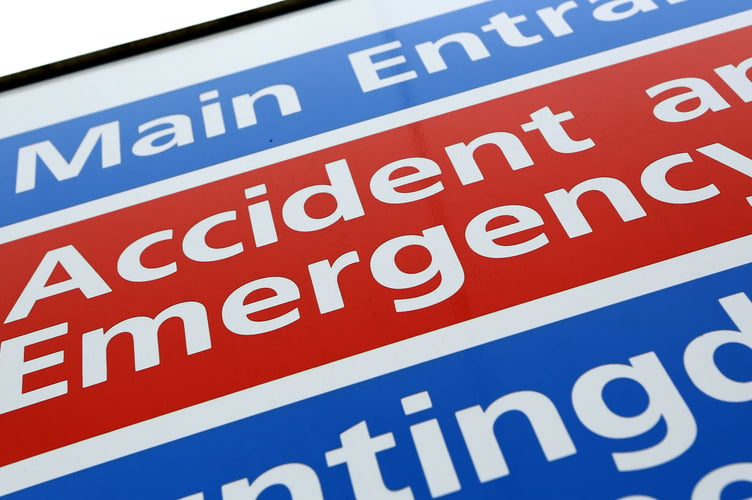No patients were diagnosed with measles after visiting accident and emergency services at Royal United Hospitals Bath last year, new figures suggest.
Despite this, experts blame poverty and falling vaccination rates for a surge in diseases such as measles, whooping cough and scabies across England.
NHS figures suggest no patients were given a primary or secondary diagnosis of measles after visiting A&E services at Royal United Hospitals Bath NHS Foundation Trust in the year to March.
There were also no hospitalisations for the condition recorded a year earlier.
The condition usually starts with cold-like symptoms and develops into a rash. It can cause serious complications if it spreads to the lungs or brain.
This data comes from clinical diagnoses made in A&E, with the true figures varying slightly after patients' samples have been tested.
Figures are not available for when there are seven hospitalisations or less – meaning there may have been a small number of diagnoses at the trust.
Across England, attendances ultimately resulting in a measles diagnosis rose five-fold to 2,305 visits last year.
Among ailments with at least 1,000 hospitalisations, this was the largest increase of any condition across England.
Last year also saw the number of whooping cough diagnoses in A&E triple, with 1,696 for the year. Whooping cough is a highly contagious respiratory infection, characterised by a persistent cough.
Meanwhile, scabies cases – a rash caused by mites on the skin – rose by 66%, with 5,661 primary and secondary diagnoses.
The figures suggest Royal United Hospitals Bath did not diagnose anyone with these conditions after a visit to A&E last year.
Gwen Nightingale, assistant director of Healthy Lives at the Health Foundation, said poverty may impact the spread of these diseases.
"Not having enough income to sustain a basic standard of living can have a negative impact on health, through factors like cold, damp homes or an inability to access healthy foods. The stress of living on a low income can also negatively impact health," she added.
"The Government has a choice as to whether it wants to perpetuate the current numbers of families living in poverty."
She urged the Government to ensure people have adequate incomes, good-quality affordable housing, and access to green spaces to limit the spread of these diseases.
The UK Health Service Authority said the rise in measles hospitalisations could be a "canary in the coalmine" for falling vaccination rates.
A spokesperson added: "In addition to measles, many children are also missing out on protection against other serious diseases, including whooping cough, meningitis, diphtheria and polio. It is especially tragic to see kids suffer when these diseases are so easily preventable."
Steve Russell, NHS national director for vaccination and screening, said: "These worrying figures highlight that too many children are still not fully protected against diseases like measles and whooping cough, which can cause serious illness but are preventable.
"Vaccines are parents’ best defence against these illnesses – that’s why the NHS offers them free, saving thousands of lives and preventing tens of thousands of hospital admissions every year."
Mr Russell urged parents to check their child's vaccination records, and to get in touch with their GP to book one if needed.




